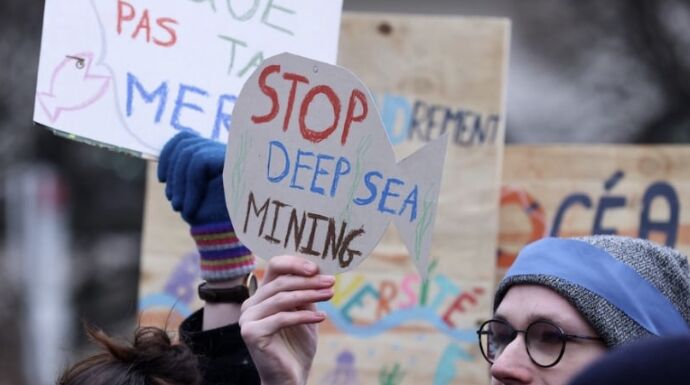International Seabed Authority Pushes Ahead with Deep-Sea Mining Regulations, Ignoring Environmental Concerns
The member nations of the International Seabed Authority have agreed on a two-year roadmap for deep-sea mining regulations, despite calls for a moratorium from conservationists. Concerns about environmental damage persist.
In a significant development, the member nations of the International Seabed Authority (ISA) have agreed on a two-year roadmap for the adoption of deep-sea mining regulations. This decision comes despite calls from conservationists for a moratorium on mineral extraction in order to protect marine ecosystems.
The ISA, an intergovernmental organization tasked with safeguarding the seabed, has been working for the past decade to formulate a mining code for deep seabed areas that lie beyond national jurisdictions.
The focus has been on the potential exploitation of valuable minerals such as nickel, cobalt, and copper. However, reaching an agreement on these regulations has proven to be a challenging task. With the deadline triggered by the small Pacific state of Nauru in 2021 now expired, the ISA is now obligated to consider licenses for mining operations that have the potential to cause significant environmental damage.
This move marks a significant departure from the previous practice, where only exploration permits were granted. Despite the progress made in the adoption of the roadmap, concerns still persist among environmentalists and ocean campaigners.
They argue that deep-sea mining poses a significant threat to marine habitats and species, some of which may still be undiscovered but crucial to the overall health of ecosystems. Additionally, the carbon-absorbing capacity of the ocean could be compromised, and underwater noise pollution could disrupt the communication of various species, including whales.
Amidst these concerns, NGOs and scientists are calling for a precautionary pause in mining operations. They argue that a moratorium is urgently needed to ensure the protection and preservation of the fragile marine environment. Around 20 countries, including France, Chile, and Brazil, have expressed support for this proposal.
The next step in this ongoing debate will occur next week when the ISA Assembly and its 167 member states convene to discuss the potential pause in deep-sea mining. The outcome of this discussion will be crucial in determining the future of deep-sea mining regulations and the preservation of our oceans.




